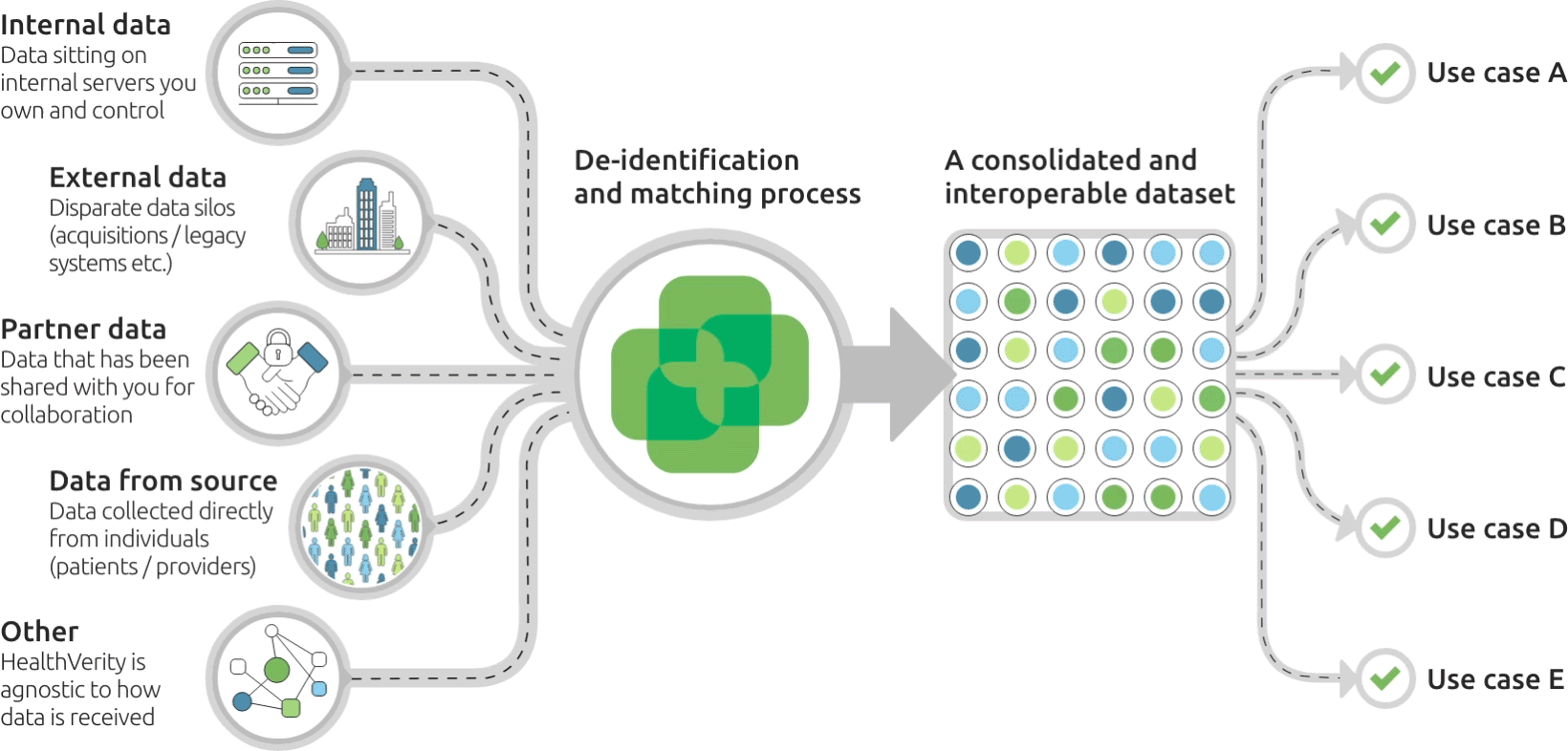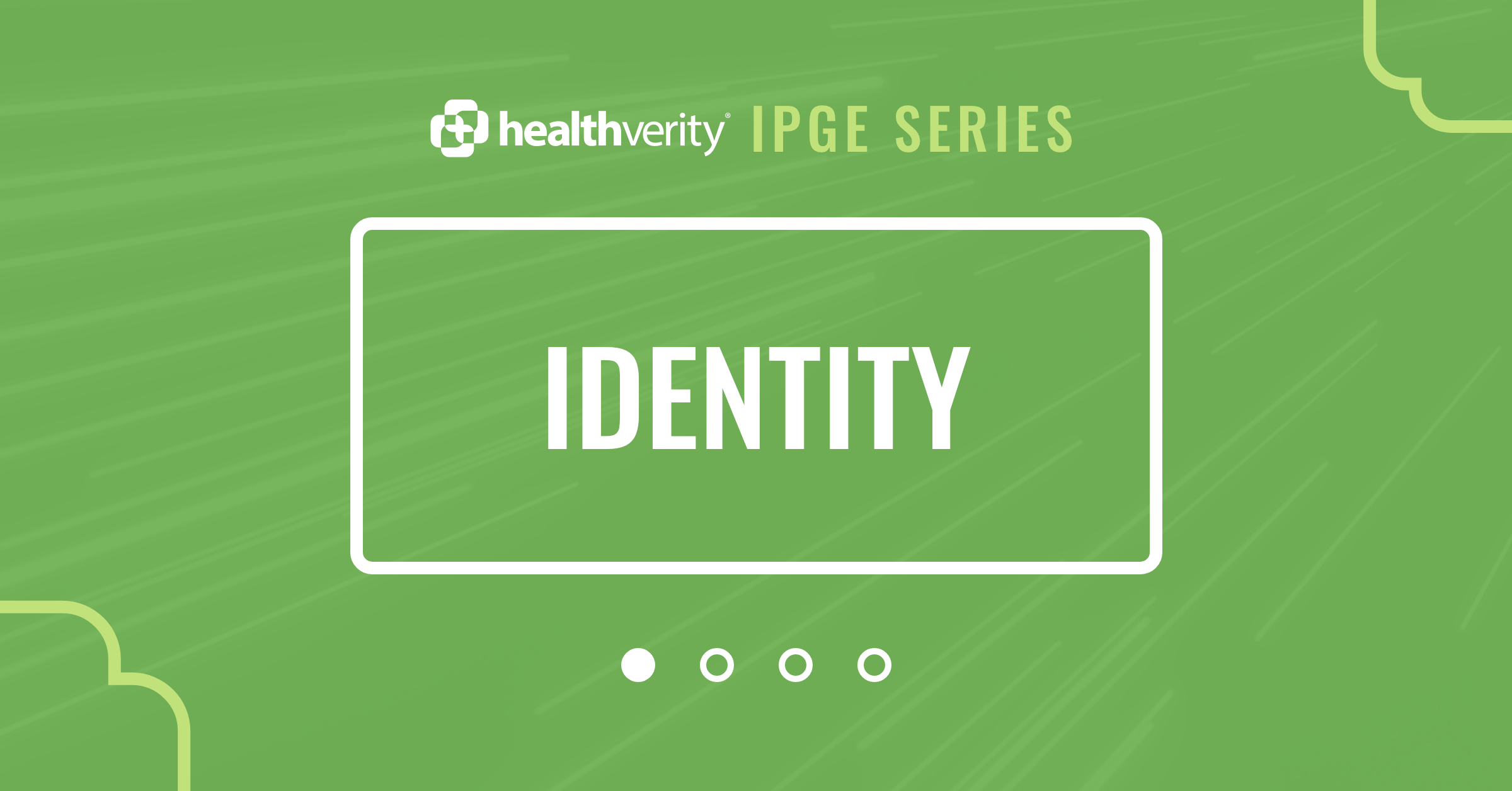Patient Identity Resolution: The next era of healthcare data interoperability
The HealthVerity IPGE platform is an integrated technology and real-world data (RWD) infrastructure solution based on four foundational elements, Identity, Privacy, Governance and Exchange, that allow data to be accurately and compliantly matched, linked and exchanged for purposes of analysis. In this series, we examine the impact of each pillar on RWD and how the components of IPGE work in unison to create a holistic ecosystem for the health insights economy.
What is the role of Identity?
Identity is the foundational element of the HealthVerity IPGE platform that solves for patient privacy, accuracy and data interoperability with accuracy being the table stakes for better research, outcomes measurement and real-world evidence (RWE) creation. The proliferation of patient data derived from thousands of new sources of RWD are driving the need for a more efficient and persistent patient identity resolution approach versus legacy “tokenization” models that the industry has relied upon for more than a decade. In our recent webinar, Patient Identity Resolution: The next era of healthcare data interoperability, John Cappiello, CTO of HealthVerity, discussed why the role of identity is essential to IPGE:
What is the difference between tokenization and patient identity resolution?
When it comes to resolving patient identity, tokenization is the process of hashing and encrypting patient information to create a “token” to replace personally identifiable information (PII) that can be used to link patients across multiple datasets assuming consistent tokenization schemes. The challenge with legacy tokenization is that it generally requires an exact match of PII fields, a rarity given the recognized noise in clinical data. The result is that the same patient with nicknames and spelling errors can be assigned multiple tokens in multiple sources, eliminating any chance of reassembling that unique patient’s health journey. Alternatively, many tokenization schemes ignore important PII fields such as zip code, making it harder to ensure that a specific token is assigned to the correct patient when presented with the same name and the same date of birth in two different geographies. This can very often mean that the same token is applied to two different patients, further diminishing the power of any RWD dataset.
In our recent webinar, Patient Identity Resolution: The next era of healthcare data interoperability, Gamble Heffernan, VP of Product for HealthVerity, demonstrated the advantages of patient identity resolution over patient tokenization and how patient identity resolution ultimately creates better outcomes for patients.
How does Identity work within the HealthVerity IPGE platform?
Within the HealthVerity IPGE platform, sophisticated software expertly resolves identity, manages privacy, enforces governance and authorizes the exchange of data between validated counterparties in a HIPPA-compliant manner. When it comes to identity, HealthVerity Census utilizes probabilistic matching techniques to far more accurately resolve patient identity in near real-time by replacing PII with a universal HealthVerity ID (HVID) so that life sciences organizations, payers and government agencies can accurately ingest RWD at scale.

John Cappiello additionally discussed how HealthVerity leverages probabilistic matching techniques to solve the challenges of ensuring accuracy when reassembling patient data across disparate data sources:
Partnering with HealthVerity
The HealthVerity IPGE platform manages the largest healthcare data RWD ecosystem in the US and provides access to more than 150 billion de-identified transactions for 330 million American patients from more than 75 data sources. Additionally, patient records within IPGE are matched at a rate that is 10 times more accurate than any other technology on the market.
To learn more about how HealthVerity helps life sciences organizations, payers and government agencies receive the most accurate view of the patient journey through RWD in order to drive your mission critical analytics, fill out the form below, email us at marketing@healthverity.com or contact us!





